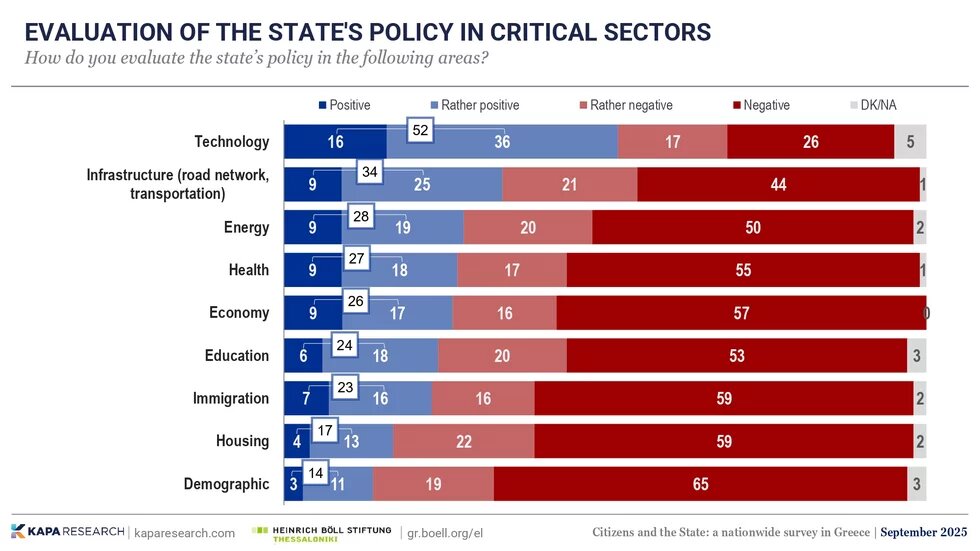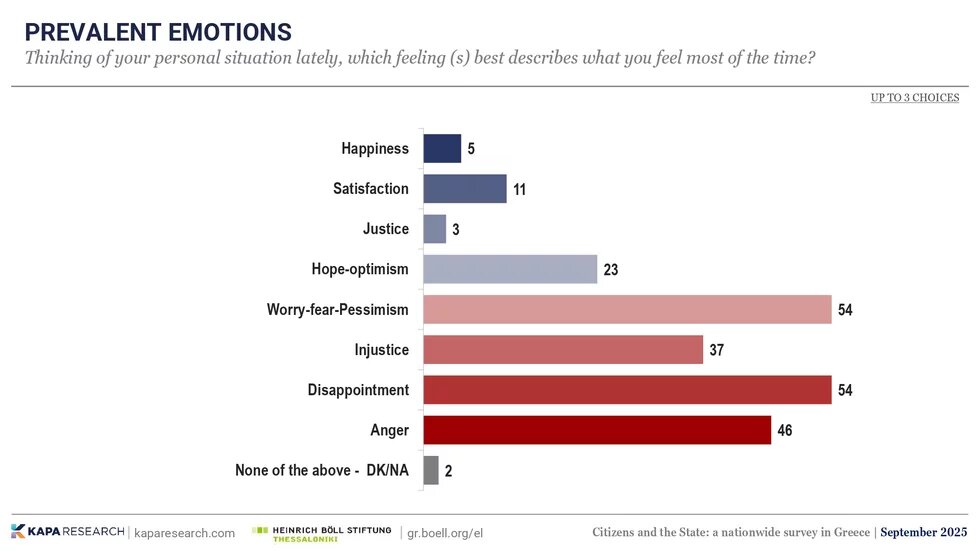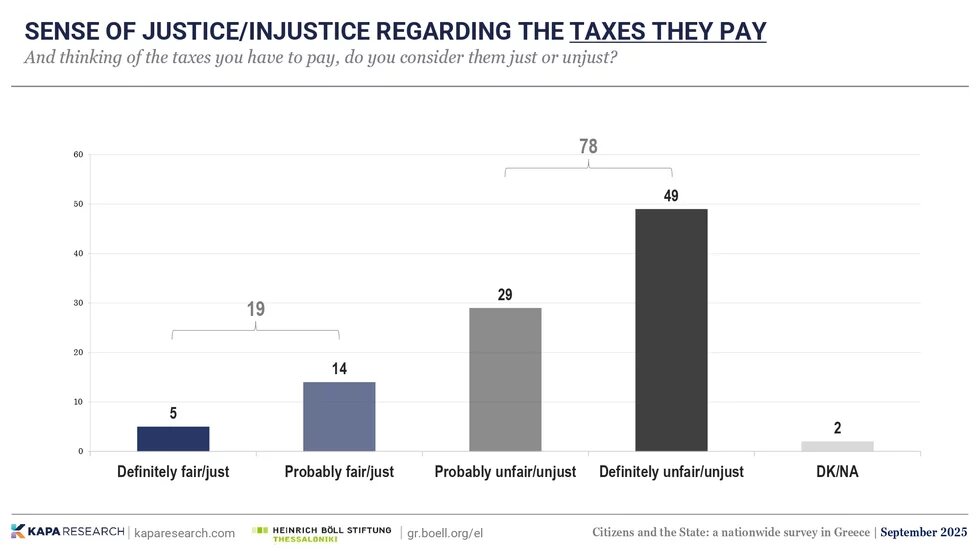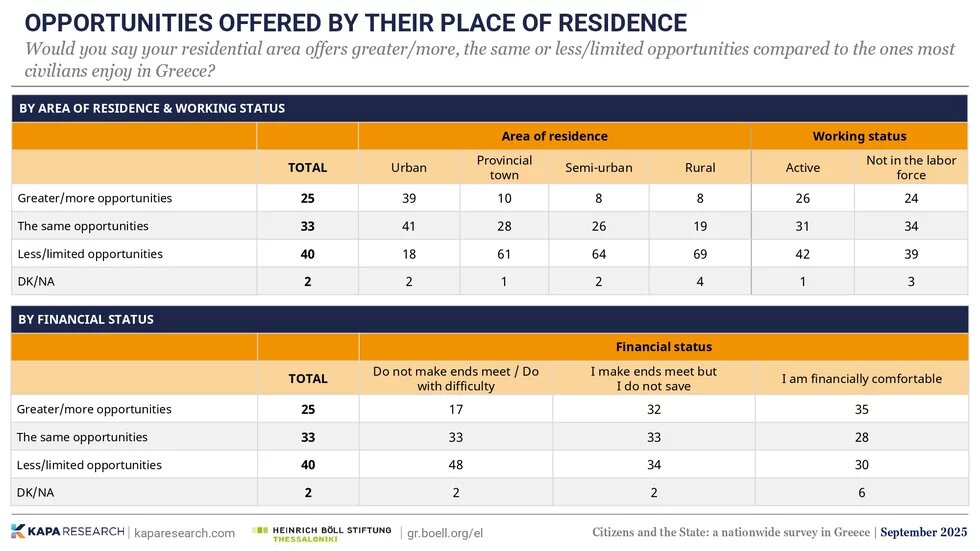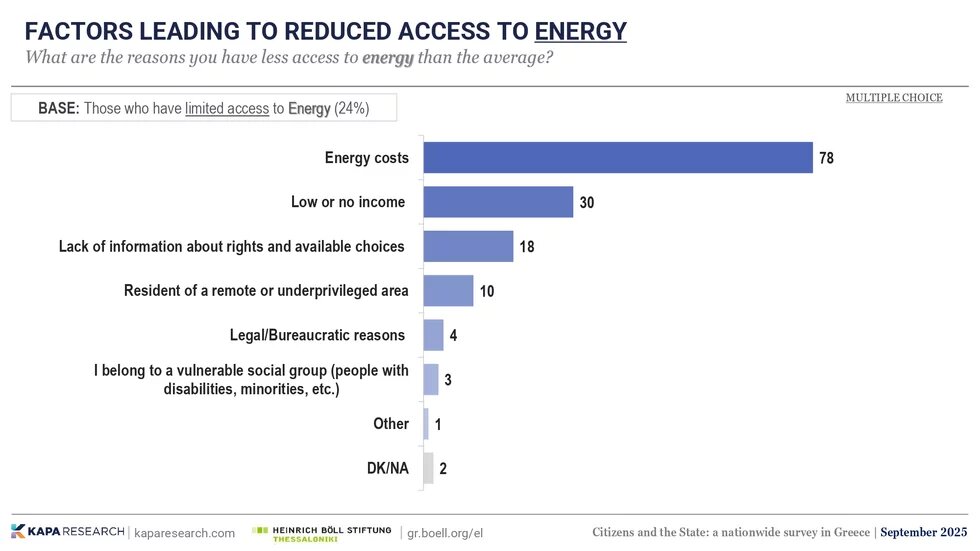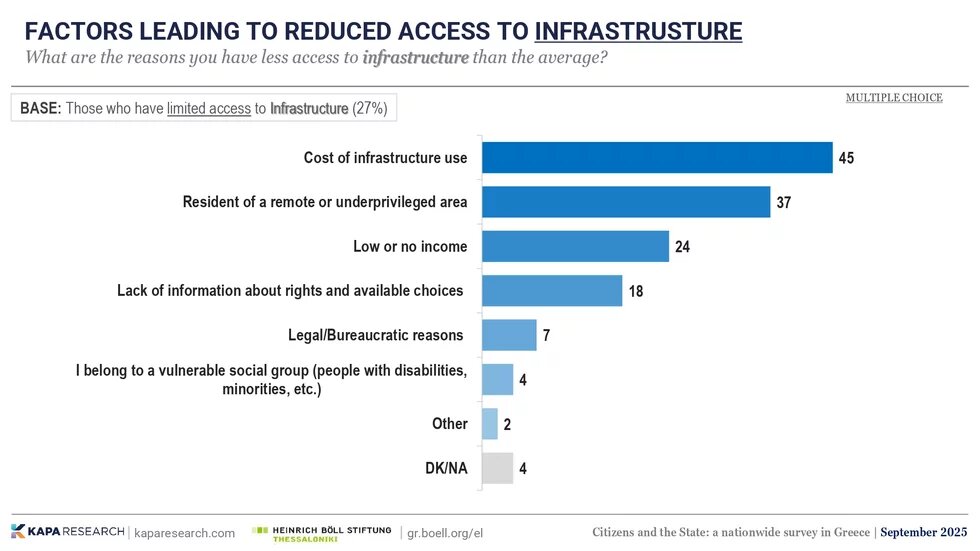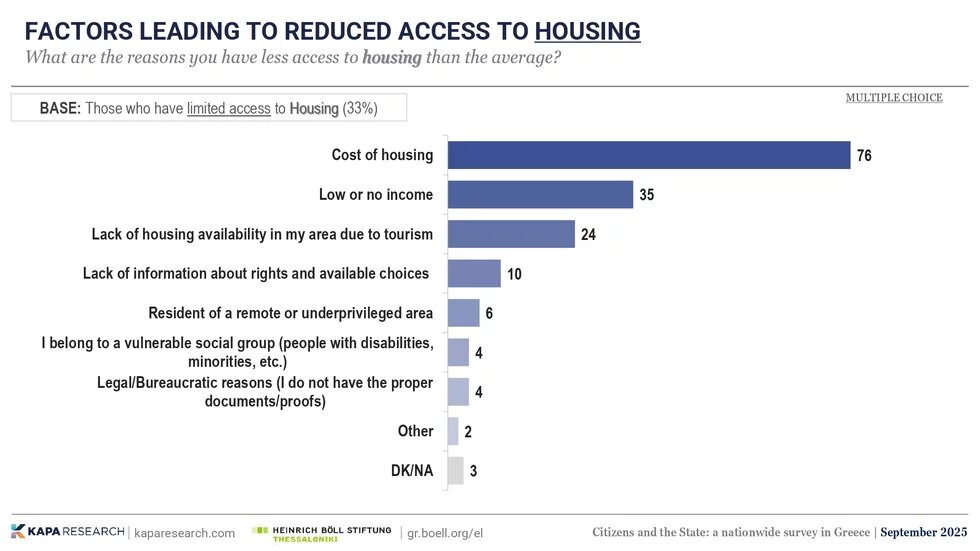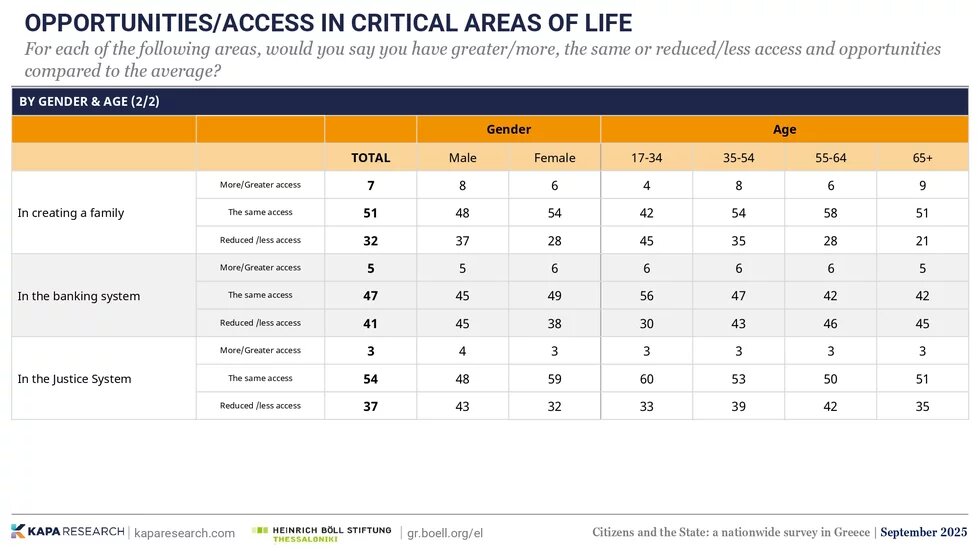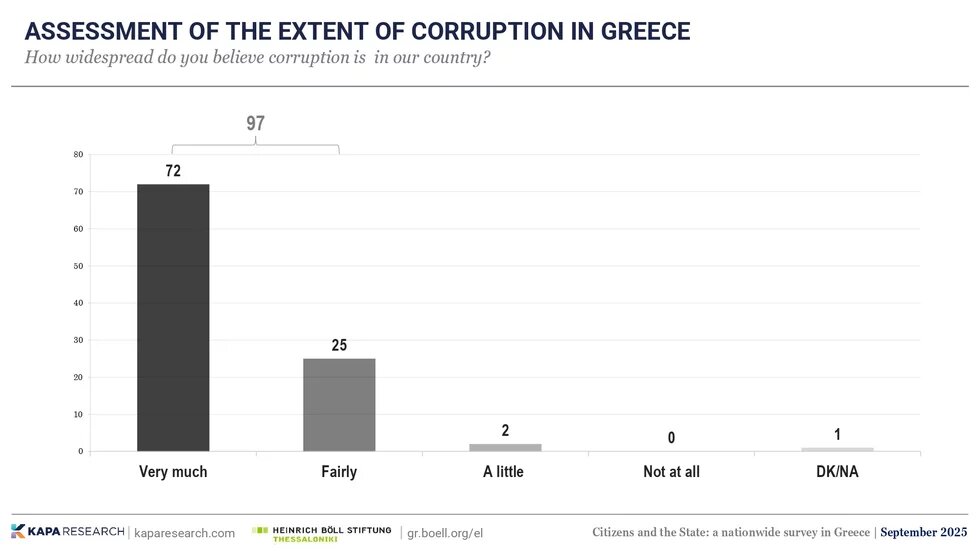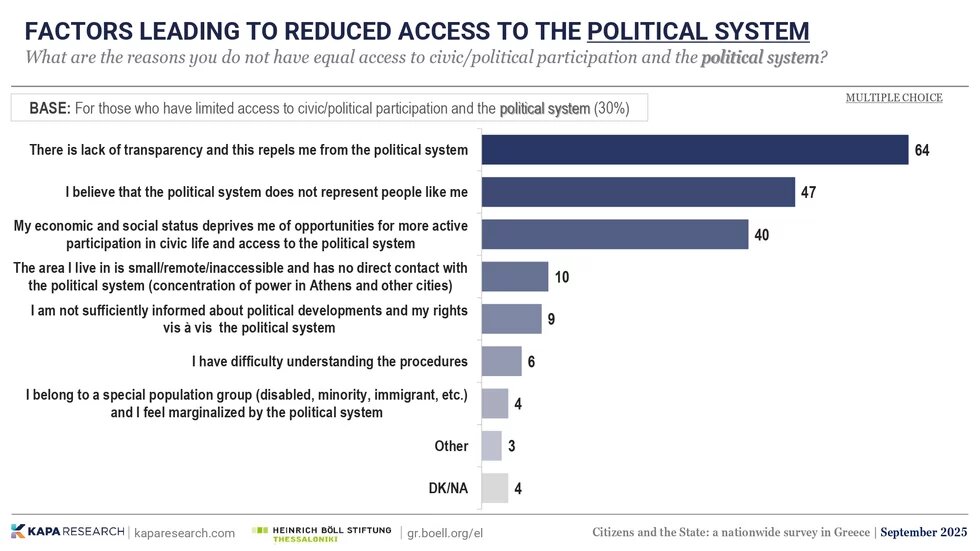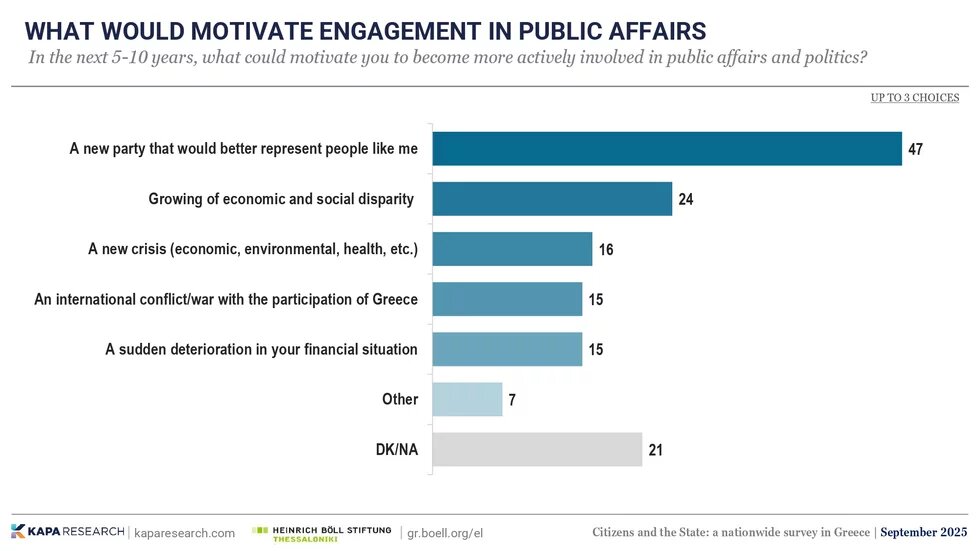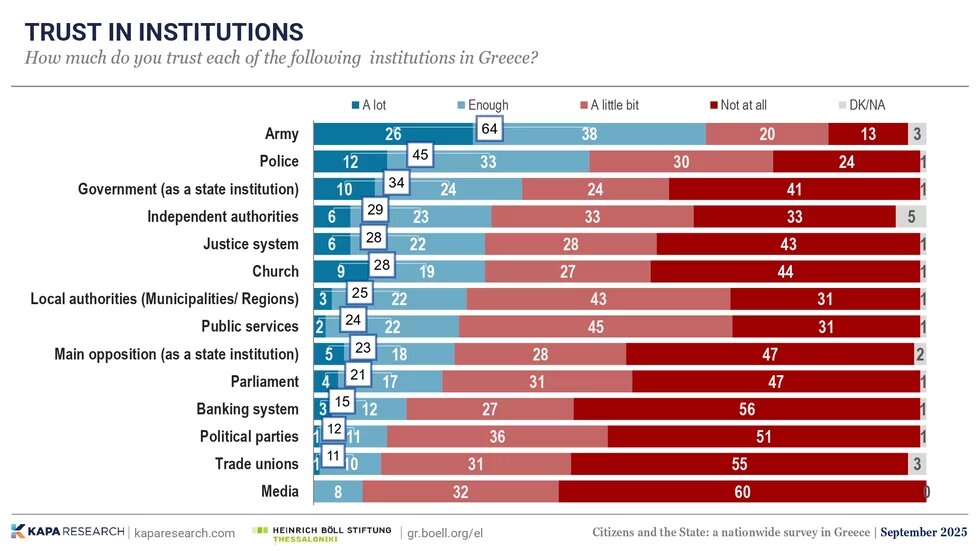
Revealing insights into the evolving relationship between citizens and the state emerge from the public opinion survey conducted by Kapa Research on behalf of the Heinrich Böll Foundation – Thessaloniki Office, in September 2025. Employing a comprehensive set of questions, the survey captured citizens’ perceptions of institutional structures, specific public services, and social phenomena, alongside their subjective emotional responses to these realities.
* Find the full survey in PDF format at the end of the text.

A key trend that appears to be consolidating is the erosion of public trust in institutional structures—a pattern consistently observed across opinion polls in recent years. Equally notable is the perceived disconnect between political parties and the electorate. Concurrently, the data highlights the persistence of both economic and spatial inequalities, accompanied by widespread sentiments of disappointment, fear, anger, and—perhaps more prominently than ever before—a sense of injustice. Moreover, the findings point to a growing consensus that individuals lacking financial resources encounter systemic barriers across multiple domains. The notion of equal and democratic access to opportunities is increasingly viewed not as a guaranteed right, but as a provision the state is either unable or unwilling to ensure.
More specifically:
Trust in institutions remains critically low, with only the military garnering approval ratings above 50%. Distrust is prevalent across nearly all demographic segments, though significant variations emerge based on respondents’ economic status, social class, and ideological orientation.
State policies are evaluated negatively across a range of key sectors, including infrastructure, energy, healthcare, the economy, education, immigration, housing, and demographic planning. Technology stands as the sole exception, receiving a majority-positive assessment. These evaluations also vary considerably depending on age group, financial standing, and political alignment.
Negative emotional responses—such as anxiety, fear, pessimism, injustice, disappointment, and anger—significantly outweigh positive sentiments like happiness, satisfaction, hope, and optimism. These emotional patterns are strongly correlated with socioeconomic and ideological factors.
Taxation is overwhelmingly perceived as unjust, particularly among lower-income respondents.
Urban centers are widely viewed as offering greater access to opportunities compared to other regions, underscoring the absence of spatial-social cohesion and the incomplete democratization of opportunity in Greece. Geographic location emerges as a major barrier, especially for economically vulnerable populations.
Economic constraints are identified as the primary impediment to access in energy, infrastructure, and housing. Notably, the burden of housing costs is reported as equally severe across all socioeconomic strata and geographic areas—highlighting the structural depth of the issue. The 17–34 age cohort appears disproportionately affected.
The perception of diminished opportunity intensifies with increasing distance from urban hubs, deteriorating financial conditions, and lower educational attainment. Residents of rural areas and economically disadvantaged groups report markedly reduced access across all service indicators. Particularly striking are the rates of limited access to “creating a family” among younger respondents aged 17–34.
A disturbing finding is that nearly all Greek citizens (97%) believe that corruption is widespread or very widespread, with nearly half reporting direct experience or witnessing incidents within the past year. The most frequently cited domains include the misuse of national and EU public resources, followed by the judiciary, public administration, political actors, and the media.
The most significant barriers to political system access are the perceived lack of transparency and representational disconnect. Importantly, these perceptions are consistent across economic and ideological lines, suggesting that political alienation is a broadly shared experience.
A politically salient finding is that the prospect of “a new party that better represents people like me” could mobilize civic and political engagement, particularly among economically marginalized groups and those identifying with the left or center-left. This response may not reflect wholesale rejection of the political system, but rather a demand for more authentic and relatable political representation.
Click below to view the detailed findings report of the survey.
